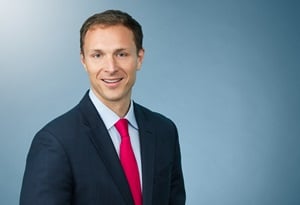Getting in the Game: What Does a Sports Lawyer Do?
Webinar
Overview
Faegre Drinker attorneys Patrick Reilly and Bianca Eddy hosted a panel of in-house sports lawyers from the NCAA, CBS Sports, the Tennessee Titans, Polaris, and Riddell for a discussion on how these lawyers entered sports law, what sports lawyers do on a daily basis, how the COVID-19 pandemic has changed the sports industry, and what advice they would offer aspiring sports lawyers.
Presenters
- Zandria Conyers, Deputy General Counsel, NCAA
- Brendan Dolan, Corporate General Counsel, Polaris Inc.
- Thomas Knapp, Senior Vice President, Business and Legal Affairs, CBS Sports Digital
- Brian Roche, General Counsel, Riddell, Inc.
- Daniel Werly, General Counsel, Tennessee Titans
- Patrick Reilly, Partner, Faegre Drinker
- Bianca Eddy, Associate, Faegre Drinker
NOTE: Please contact dionne.brooks@faegredrinker.com if you would like to view a special on-demand recording to obtain CLE credit.
QUESTIONS? Please contact Jenna Innocenzi or call +1 215 988 1104.
Firm Speakers
Continuing Education
NOTE: Please contact dionne.brooks@faegredrinker.com if you would like to view a special on-demand recording to obtain CLE credit.
This program has been approved by and in accordance with the Commissions, Boards, and Committees for Continuing Legal Education in the following states for the listed amount of credits:
- California – 1.0 participatory hours of credit, which 0 may be claimed for required MCLE in legal ethics, elimination of bias, or competence issues.
- Colorado – 1.0 Live hours of credit, of which 0 may be claimed for ethics.
- Connecticut – 1.0 reciprocal hours of credit, of which 0 may be claimed for ethics.
- Illinois – 1.0 hours of general CLE including 0 hours of professional responsibility.
- Indiana – 1.0 of distance hours of substantive continuing education credit, including 0 hours of ethics or nls continuing education credit.
- New Jersey –1.2 distance hours of CLE Credit. Of these, 0 qualify as hours of credit for ethics/professionalism.
- New York – 1.0 non-traditional hours of CLE credit, of which 0 credit hours can be applied towards professional practice OR ethics and professionalism for both newly admitted and experienced attorneys.
- Pennsylvania – 1.0 distance hours of substantive law, practice, and procedure CLE credit and 0 hours of ethics, professionalism or substance abuse CLE credit.
- Texas – 1.0 hours of credit, of which 0 credit hours will apply to legal ethics/professional responsibility.
An application for approval of this course has been submitted and is pending in the following states: Delaware, Iowa, Minnesota and Virginia.



